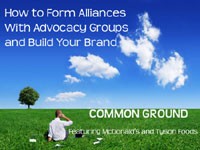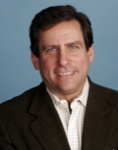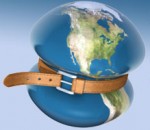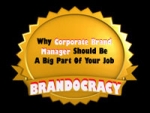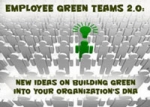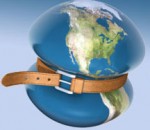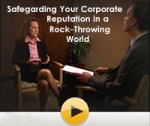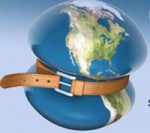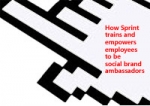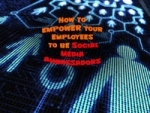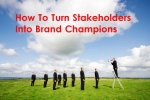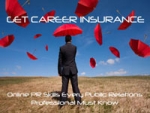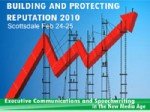In this age of rapid communication, openness and transparency, it becomes more important than ever to find common ground and forums for dialogue with stakeholder groups beyond customers and shareholders. Mutually beneficial alliances with environmentalists, health-care advocates and similar groups can provide insights into markets, societal trends and public concerns. Done well, such alliances can enhance the reputation of both the company involved and the advocacy group. Learn how McDonald’s and Tyson Foods have implemented mutually beneficial alliances with advocacy groups and NGOs.
What You Will Learn:
- What works and what doesn’t in building alliances with advocacy groups
- NGOs as friends, foes and collaborators
- Best practices in forming productive alliances with advocacy groups
Questions Asked and Answered
- What are some of the criteria you use to select NGO’s?
- Do you see significant variance between the individuals within NGO’s?
- Does McDonalds carry on an open dialogue with PETA and other antagonists in the 9 and 10 zone?
- Can you talk more about using social networking for NGO engagement?
- CSPI and PETA are very antagonistic; what guidance can you offer for dealig with these specific entities?
- What’s the most effective approach for a national company with only 1 PR and 1 Community Relations employee and no agency?
- Is it best to focus on one issue like Tyson is doing with hunger, and establish leadership over long term, or try to be involved in many other issues on a lesser scale?
- Are there any examples faith-based organizations who have been good partners for you to work with?
- Social media engagement takes a lot of manpower to do. Are either of you adding to staff to engage online with NGO’s?
- Can you both give examples of how you have enabled local leaders to emulate your corporate strategies on a local basis?
- Who is the most important audience to hear about your commitment to hunger?
Presented by:
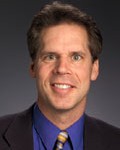 Bob Langert is Vice President, Corporate Social Responsibility for McDonald’s. His responsibilities with McDonald’s include social responsibility efforts, including McDonald’s social responsibility reporting; Global environmental management systems and issues; Global supply chain issues (e.g., sustainable agriculture, biotechnology, animal agricultural and animal welfare programs); Issues management; and part of McDonald’s “Balanced, Active Lifestyles” team.
Bob Langert is Vice President, Corporate Social Responsibility for McDonald’s. His responsibilities with McDonald’s include social responsibility efforts, including McDonald’s social responsibility reporting; Global environmental management systems and issues; Global supply chain issues (e.g., sustainable agriculture, biotechnology, animal agricultural and animal welfare programs); Issues management; and part of McDonald’s “Balanced, Active Lifestyles” team.
Langert joined McDonald’s in 1983, with management positions in logistics and packaging purchasing in the 80s; and responsibilities for environment, energy management, animal welfare, Ronald McDonald Children’s Charities, emerging issues’ management, and, most recently, social responsibility in the 90’s through today. He earned an MBA from Kellogg School of Management, Northwestern University, Evanston, Illinois; a BA from Lewis University, Romeoville, Illinois, and a BS at Hamburger University.
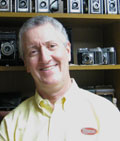 Ed Nicholson is currently director of corporate community and public relations for Tyson Foods, Inc. He has been with Tyson since 1995, previously serving as the company’s director of media relations, and primary media spokesperson. Ed is part of a team that helps create and implement community relations strategies in the 100 U.S. communities in which Tyson Foods has operations. He is also responsible for managing relationships within Tyson’s primary area of philanthropic activity, hunger relief. He has been at the forefront of Tyson’s use of social media, which is focused on creating community around the issue of hunger.
Ed Nicholson is currently director of corporate community and public relations for Tyson Foods, Inc. He has been with Tyson since 1995, previously serving as the company’s director of media relations, and primary media spokesperson. Ed is part of a team that helps create and implement community relations strategies in the 100 U.S. communities in which Tyson Foods has operations. He is also responsible for managing relationships within Tyson’s primary area of philanthropic activity, hunger relief. He has been at the forefront of Tyson’s use of social media, which is focused on creating community around the issue of hunger.
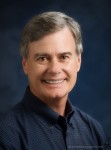 Peter Faur, president of RightPoint Communications Inc., has been
Peter Faur, president of RightPoint Communications Inc., has been
on the front lines of controversies ranging from environmental spills and cleanups to industrial fatalities to allegations of animal abuse at marine theme parks. He is known for keeping a cool head, getting people from many walks of life to talk together, and helping people learn how to explore each other’s concerns so they can find mutually agreeable solutions to problems they face. Faur moved to Phoenix in late 2002 to head the communications staff of Phelps Dodge Corp., a copper-mining company acquired in 2007 by Freeport-McMoRan Copper & Gold Inc. As vice president-corporate communications, he was responsible for all the company’s internal and external communications programs. He designed and implemented a community relations and communications model now replicated in several communities in which the company is pursuing environmental remediation projects. While the issues are controversial, the company has been able to build bases of support and has kept strong, results-oriented dialogues in place.
Additional Resources:
- McDonald’s Corporate Responsibility homepage
- Tyson Foods Hunger Relief Homepage – Recent News Releases
- Peter Faur’s Common Ground Blog Post on this webinar

